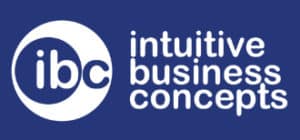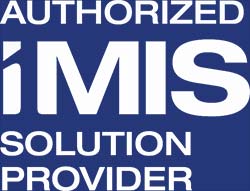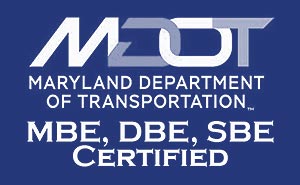What are your organization’s biggest pain points? If you’re unsure, look to your data.
Business intelligence is considered essential in the for-profit world but it can be just as useful to nonprofits. Data-informed organizations blend information, experience, and context to answer key questions and assess progress toward their goals. They also use this information to identify gaps in service and shortcomings, often called an organization’s ‘pain points’. The process takes time to develop and assess but it empowers organizations to be more responsive and facilitates improvements that can lead to greater success. If your not-for-profit wants to improve its budgeting, forecasting, fundraising, recruiting and retention, or other functions but is having a hard time identifying both problems and solutions, data analytics can help.
Please read on to discover how data can identify and ease your organization’s biggest pain points, along with best practices for successful analytics.
Pain Point #1: Disjointed reporting
For many organizations, the challenge isn’t a lack of data, but a lack of access to the data they need at the right time. In the nonprofit space, data is often siloed and spread across several repositories and applications. That means a huge, time-consuming manual effort is often required to identify the correct data and provide accurate analyses. Enterprise reporting tools like those found in iMIS enable organizations to instantly combine data sources into a single data model to get a comprehensive picture of operations and previously unattainable insights. They can also review internal and external data from the past to identify patterns, make projections, and create accurate plans for the future.
Paint Point #2: Forecasting and budgeting woes
For many nonprofits, the annual budgeting process is a tedious manual exercise. Data from various departments and systems is gathered and then laboriously analyzed, massaged, and placed into static spreadsheets. Not only is it time consuming, but it’s also prone to error. This challenge of manually managing budgeting, forecasting, and planning can be removed with nonprofit data analytics tools. They streamline communication and centralize the data, supporting complex planning and analysis. With access to integrated information and real-time reporting, organizations can quickly and accurately track their progress toward goals.
Pain Point #3: Mind-boggling compliance requirements
Nonprofits are held to a high standard of government regulation and public scrutiny because of their tax-exempt status and access to public funding. As such, they must meet a host of rapidly changing federal, state, and local laws. A proactive approach to compliance provides organizations with data that proves fiscal responsibility and demonstrates why public support is deserved. Adherence to rigorous government regulations is simplified with the right data analytics tools. Accurate, real-time business intelligence makes it possible to easily collect and analyze data, create error-free reporting, and prepare for audits, if necessary.
Pain Point #4: Haphazard fundraising and donor outreach efforts
Fundraising and donor management are critical functions of nonprofits, so they must be handled with great care. If resources are lacking, gaps in service will eventually appear. If too many resources are utilized for fundraising, revenue will be adversely affected. And then there are those vital large benefactors. Do you know who they are and which communications yield the best results? Collecting relevant donations data allows nonprofits to maximize their impact. Information such as donation size, frequency, donor engagement, and campaign effectiveness can all be tracked to provide valuable insights. Making data-driven decisions can directly translate into more donations while reducing marketing and outreach expenses.
To reap the greatest rewards from your data analytics efforts, follow these best practices:
- Get everyone on board.
Without context and connection, data is meaningless. Help staff members, volunteers, and board members understand the importance of your data collection and reporting efforts. You might accomplish this by explaining how the practice supports your organization’s goals and mission, and how participation aligns everyone with your common purpose. Give people the rationale behind the effort and the tools they need to understand its value to them.
- Don’t measure everything.
Just because you’re emphasizing the value of data, it doesn’t mean you have to gather, track, and evaluate every piece of information. This leads to wasted time, encourages overthinking, and hinders effective decision-making. Instead, develop a few key indicators of the greatest value to staff, board members, and external stakeholders and concentrate on those metrics.
- Report consistently and in the right format.
Share information on a frequency that supports your decision-making needs, such as
weekly, monthly, quarterly, or annually. In certain high-visibility or critical situations, real-time reporting may be required. Make sure the information is communicated in a format your audience can easily understand and interpret.
- Review and revise key performance indicators (KPIs) regularly.
Changes in economic conditions, a shift in focus, or other situations can quickly make KPIs obsolete. Remove analytics that are no longer relevant to decision-making and replace them with new, more valuable measures. At a minimum, KPIs should be reviewed annually to ensure they deliver relevant and actionable insights.
Nonprofits generally have limited resources, so it’s critical to make the best use of available data and harness it in a way that will yield the greatest insights. By identifying your organization’s biggest pain points and addressing them with the right data solutions, it can expand your reach, drive the impact of your mission, and allow you to better serve your constituents.
Effectively using data to inform your decisions makes it easier to manage your organization, make improvements, and deliver a better donor and member experience. If you’re ready to become a data-driven association and reap impressive rewards, IBC’s friendly experts are here to help. Please contact us to get started.
About IBC: At IBC, we have a deep understanding of the critical business needs and processes specific to associations, non-profits, and unions. We ‘get’ your culture, your goals, and what drives you, too. Focused exclusively on and dedicated to delivering the most effective AMS, LMS, and Cloud Financial Software for our clients, we’re well-versed in identifying and applying the integration techniques that will save you time and money. Since 2001, our cutting-edge products, unparalleled responsiveness, and award-winning services have helped organizations like yours increase their operational and financial performance by leveraging best practices and proven solutions. For more information about IBC, please visit the website at www.ibconcepts.com or call 443.603.0215.









